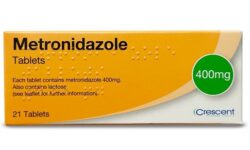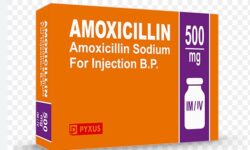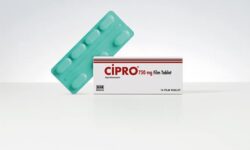Can I Drink Coffee When Taking Ciprofloaxcin?
Are you a coffee lover who is currently Can I Drink Coffee When Taking Ciprofloaxcin? You may be wondering whether it’s safe to continue enjoying your daily caffeine fix while on this medication. In this blog post, we’ll explore the potential interactions and side effects of combining ciprofloxacin and coffee. We’ll also dive into the impact of ciprofloxacin on caffeine metabolism, as well as how caffeine can affect the absorption of ciprofloxacin in the body. Additionally, we’ll discuss the potential for central nervous system stimulation when combining these two substances, and the importance of consulting a healthcare professional to understand the risks and benefits. So, if you’re curious about whether you can drink coffee while taking ciprofloxacin, keep reading to find out more. Learn about the impact of ciprofloxacin on caffeine metabolism, potential interactions and side effects, and how to consult a healthcare professional for balancing.
Impact Of Ciprofloxacin On Caffeine Metabolism
When it comes to medications and their potential interactions with everyday substances like caffeine, it’s important to be informed about any potential risks or side effects. Many people wonder Can I Drink Coffee When Taking Ciprofloxacin? This is a valid question, as caffeine is a widely consumed stimulant that can have various effects on the body, including potential interactions with certain medications.
Ciprofloxacin, a commonly prescribed antibiotic, is known to be metabolized by the liver and excreted through the urine. This means that any substances that affect liver function or urine composition may potentially interact with ciprofloxacin and alter its effects on the body. With caffeine being metabolized in the liver as well, there is a possibility of interference when ciprofloxacin is present in the system.
Potential interactions between ciprofloxacin and caffeine may result in altered metabolism of either substance, potentially leading to increased or decreased levels in the bloodstream. These fluctuations can impact the effectiveness of ciprofloxacin as well as the stimulant effects of caffeine, making it crucial to be aware of the potential implications of consuming caffeine while taking ciprofloxacin.
It’s important to consult a healthcare professional if you have any concerns about the impact of ciprofloxacin on caffeine metabolism, as they can provide personalized guidance based on your medical history and specific circumstances.
Potential Interactions And Side Effects
When it comes to taking Ciprofloxacin, it’s important to be aware of potential interactions with other substances, including caffeine. While caffeine itself doesn’t have a direct interaction with Ciprofloxacin, it’s important to consider the potential side effects of both substances when consumed together.
Combining caffeine and Ciprofloxacin can potentially lead to increased central nervous system stimulation, as both substances have stimulant effects. This can result in symptoms such as nervousness, jitteriness, and an increased heart rate, particularly when consumed in high doses.
Additionally, caffeine has been reported to affect the absorption of certain medications, including Ciprofloxacin. It’s important to be mindful of the timing of caffeine consumption when taking Ciprofloxacin to avoid any potential impact on the medication’s effectiveness.
Given the potential interactions and side effects of consuming caffeine when taking Ciprofloxacin, it’s crucial to consult with a healthcare professional before making any decisions. They can provide personalized guidance and recommendations based on individual health conditions and medication regimens.
Ciprofloxacin And Central Nervous System Stimulation
When taking ciprofloxacin, it is important to be mindful of its potential interactions with other substances, such as caffeine. Ciprofloxacin is known to have an impact on the central nervous system, and when combined with caffeine, the effects can be heightened. As such, it is essential to be cautious about consuming caffeine while on a ciprofloxacin regimen, as it may contribute to central nervous system stimulation.
It is widely known that caffeine is a central nervous system stimulant, and when taken in conjunction with ciprofloxacin, the risk of overstimulation becomes a concern. In some cases, this combination can lead to increased anxiety, restlessness, and insomnia. Therefore, it is crucial to be mindful of the potential side effects and interactions when considering the consumption of caffeine while on ciprofloxacin.
Additionally, when taking ciprofloxacin, it is advisable to consult a healthcare professional regarding the consumption of caffeine. It is essential to communicate openly about any potential side effects or concerns, as they can provide guidance on managing the potential for central nervous system stimulation. Ultimately, finding a balance between the benefits of caffeine and the risks associated with ciprofloxacin is crucial for maintaining overall well-being.
In conclusion, when taking ciprofloxacin, it is important to be mindful of its potential interactions with caffeine, especially regarding central nervous system stimulation. Consulting a healthcare professional can provide valuable insight and guidance, helping to ensure that the benefits and risks are carefully balanced.
Caffeine’s Effect On Ciprofloxacin Absorption
Can I Drink Coffee When Taking Ciprofloxacin? This is a common question for many individuals who are prescribed this antibiotic. It’s essential to understand the potential interactions between caffeine and ciprofloxacin in order to ensure the effectiveness of the medication.
When considering the effect of caffeine on ciprofloxacin absorption, it’s important to note that caffeine can increase the absorption of ciprofloxacin in the body. This means that consuming caffeine, whether through coffee, tea, or other sources, can potentially impact the way your body processes and utilizes ciprofloxacin.
It’s crucial for individuals taking ciprofloxacin to be mindful of their caffeine intake and to discuss this with their healthcare professional. Depending on the individual’s health condition, the dosage of ciprofloxacin, and other medications they may be taking, it’s possible that caffeine consumption could affect the overall effectiveness of the antibiotic.
Ultimately, while it’s important to be aware of the potential interaction between caffeine and ciprofloxacin, consulting a healthcare professional is key to understanding the specific impact on absorption and determining the best course of action for each individual’s unique circumstances.
Balancing The Benefits And Risks
Can I Drink Coffee When Taking Ciprofloxacin? is a question that many individuals might have when prescribed this antibiotic. It is important to consider the potential interactions and side effects of combining the two substances. Ciprofloxacin has been shown to impact caffeine metabolism, leading to a buildup of caffeine in the body. This can result in central nervous system stimulation, which may cause anxiety, restlessness, and trouble sleeping.
On the other hand, caffeine’s effect on ciprofloxacin absorption is also a concern. Research has indicated that caffeine can affect the absorption of ciprofloxacin, potentially decreasing its effectiveness. This highlights the need for individuals to be aware of the potential risks and benefits of consuming coffee while taking this medication.
When it comes to balancing the benefits and risks, consulting a healthcare professional is crucial. They can provide personalized guidance based on an individual’s medical history and current health status. It is important to discuss any concerns or questions about the potential interactions between ciprofloxacin and caffeine in order to ensure the safe and effective use of this antibiotic.
In conclusion, while it is possible to drink coffee when taking ciprofloxacin, it is essential to do so with caution. Understanding the impact of ciprofloxacin on caffeine metabolism, as well as the potential interactions and side effects, is key to making informed decisions about caffeine consumption while on this medication. Consulting a healthcare professional can provide valuable insights into balancing the benefits and risks associated with combining ciprofloxacin and coffee.
Frequently Asked Questions
How does ciprofloxacin impact caffeine metabolism?
Ciprofloxacin can inhibit the metabolism of caffeine, leading to increased levels of caffeine in the body.
What are the potential interactions and side effects of mixing ciprofloxacin and caffeine?
Potential interactions include increased central nervous system stimulation and the risk of caffeine toxicity. Common side effects may include increased heart rate, restlessness, and anxiety.
Does ciprofloxacin have an impact on central nervous system stimulation when combined with caffeine?
Yes, combining ciprofloxacin with caffeine can cause an increase in central nervous system stimulation, leading to nervousness, jitteriness, and difficulty sleeping.
How does caffeine affect the absorption of ciprofloxacin?
Caffeine can decrease the absorption of ciprofloxacin, potentially reducing its effectiveness in treating bacterial infections.
What are the benefits and risks of drinking coffee while taking ciprofloxacin?
The benefits of avoiding caffeine while on ciprofloxacin include minimizing potential drug interactions and side effects. The risks of mixing the two include decreased effectiveness of the antibiotic and increased caffeine-related side effects.
Should I consult a healthcare professional before consuming caffeine while on ciprofloxacin?
Yes, it is important to consult a healthcare professional before consuming caffeine while on ciprofloxacin to understand the potential risks and benefits based on individual health factors and the specific antibiotic treatment.
Can I still enjoy other caffeinated beverages while taking ciprofloxacin?
Consuming other caffeinated beverages while on ciprofloxacin may also pose similar risks and interactions, and it is advisable to seek guidance from a healthcare professional before doing so.



